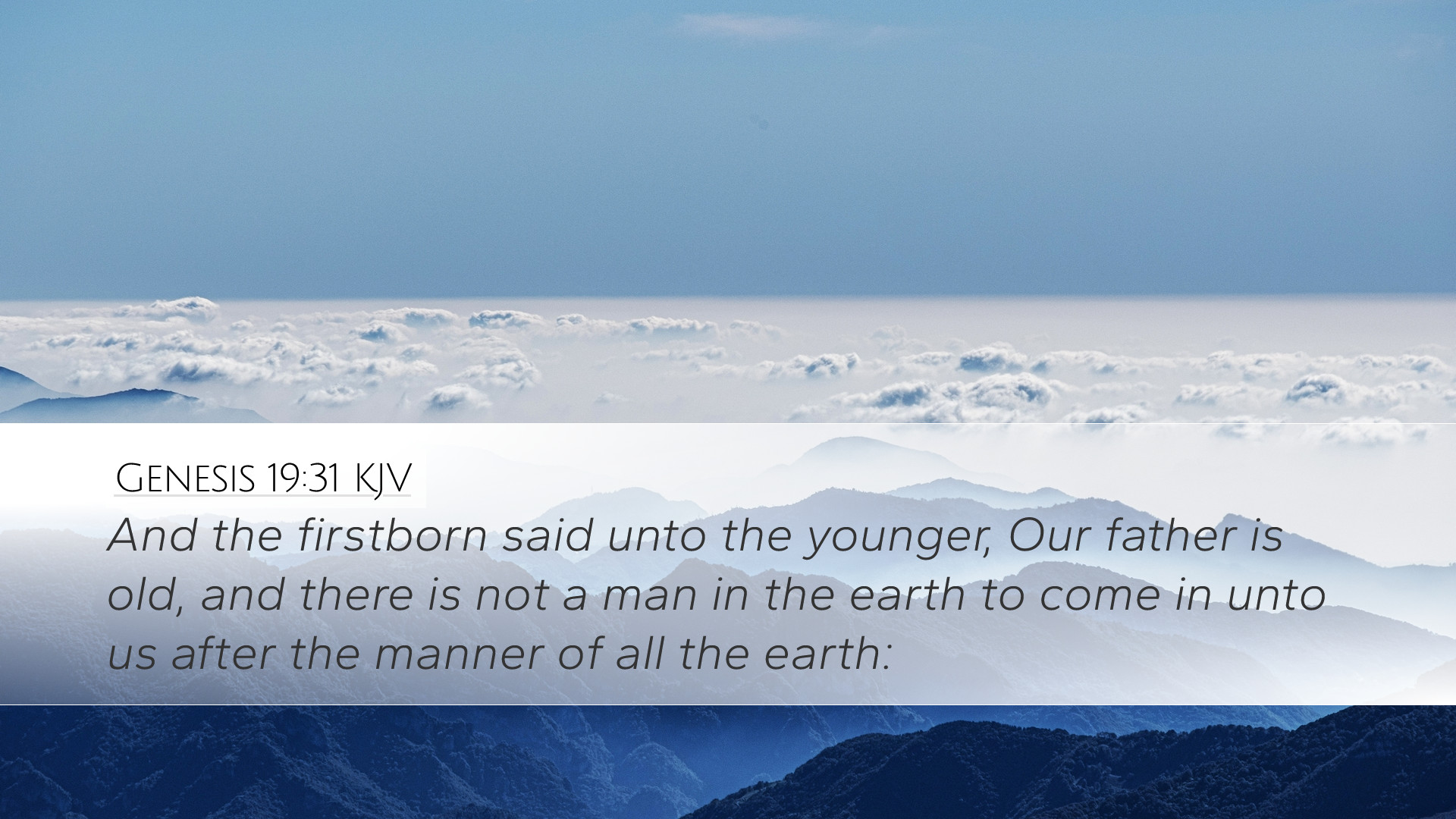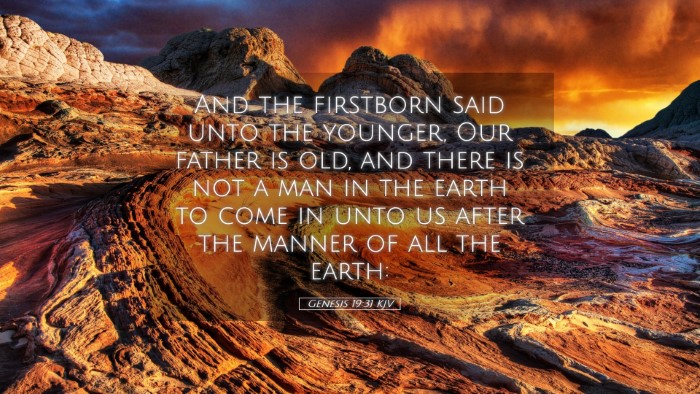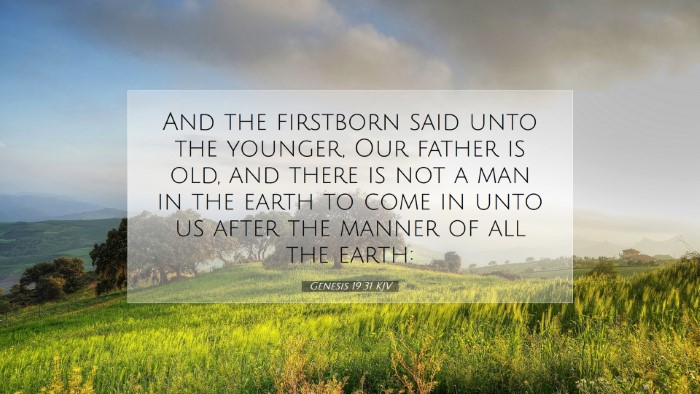Commentary on Genesis 19:31
Genesis 19:31 states: "And the firstborn said unto the younger, Our father is old, and there is not a man in the earth to come in unto us after the manner of all the earth." This verse highlights a crucial point in the narrative of Lot and his daughters, reflecting themes of desperation, morality, and the implications of human actions.
Context and Importance
This verse sits profoundly within the context of the destruction of Sodom and Gomorrah. Lot's daughters, left in a devastated world post-destruction, perceive a lack of options for progeny, leading to their fateful decisions. Matthew Henry discusses this emotional despair and the resulting illogical rationale of the daughters as a reflection of their isolation and cultural background.
Desperation of Lot’s Daughters
-
Isolation: Albert Barnes emphasizes the isolation of Lot and his daughters. In a society focused on depravity, the daughters’ logic seems to stem from a lack of societal norms, leading them down a tragic path of actions.
-
Calculation of Fear: Adam Clarke provides insight into the daughters' fear of utterly losing their family line, showcasing the lengths to which they would go to ensure their lineage continues, viewing their father as their only option.
Theological Insights
This verse opens a discussion regarding the morality of the actions taken later in the account (the incestuous relationships). It forces scholars to confront the complexities of human behavior in desperation. Matthew Henry argues that circumstances do not justify sin; instead, they denounce it more significantly.
Understandings of Moral Implications
Through this lens, commentators suggest that the daughters exhibit a lack of faith in God's provision for them. They resort to their own understanding rather than seeking divine intervention. Albert Barnes remarks that even in extreme circumstances, reliance on God's will is paramount, instead of taking matters into one's hands.
Cultural Context
The culture of the time was patriarchal, with lineage so crucial that the urgency felt by the daughters is more understandable when viewed through this spectrum. They believed that without sons, their father's house would become desolate. Adam Clarke notes that this illustrates the broader socio-cultural pressures that faced women to ensure their family's continuation.
Implications for Today’s Believers
This verse serves as a reminder for contemporary believers regarding the importance of faith in God's provision. The actions of Lot's daughters act as a warning against taking desperate actions that contradict moral principles. They symbolize the broader struggles faced in maintaining faith amidst circumstances that seem dire. Pastors should guide their congregations to find assurance in God's plans even when circumstances look bleak.
Application in Spiritual Life
In practical application, this story and this verse ask significant questions related to faith, obedience, and morality in believers' lives today. It challenges them to seek divine wisdom instead of succumbing to panic and fear-inspired decisions. This reminder is crucial for those in leadership roles, particularly in guiding their communities or congregations through crises of faith.
Conclusion
The story encapsulated in Genesis 19:31 is laden with lessons on human frailty, the critical nature of trust in God's promises, and the need for moral clarity amid confusion. Each commentator—Matthew Henry, Albert Barnes, and Adam Clarke—brings depth to understanding these dynamics in the context of family, faith, and societal expectations.


